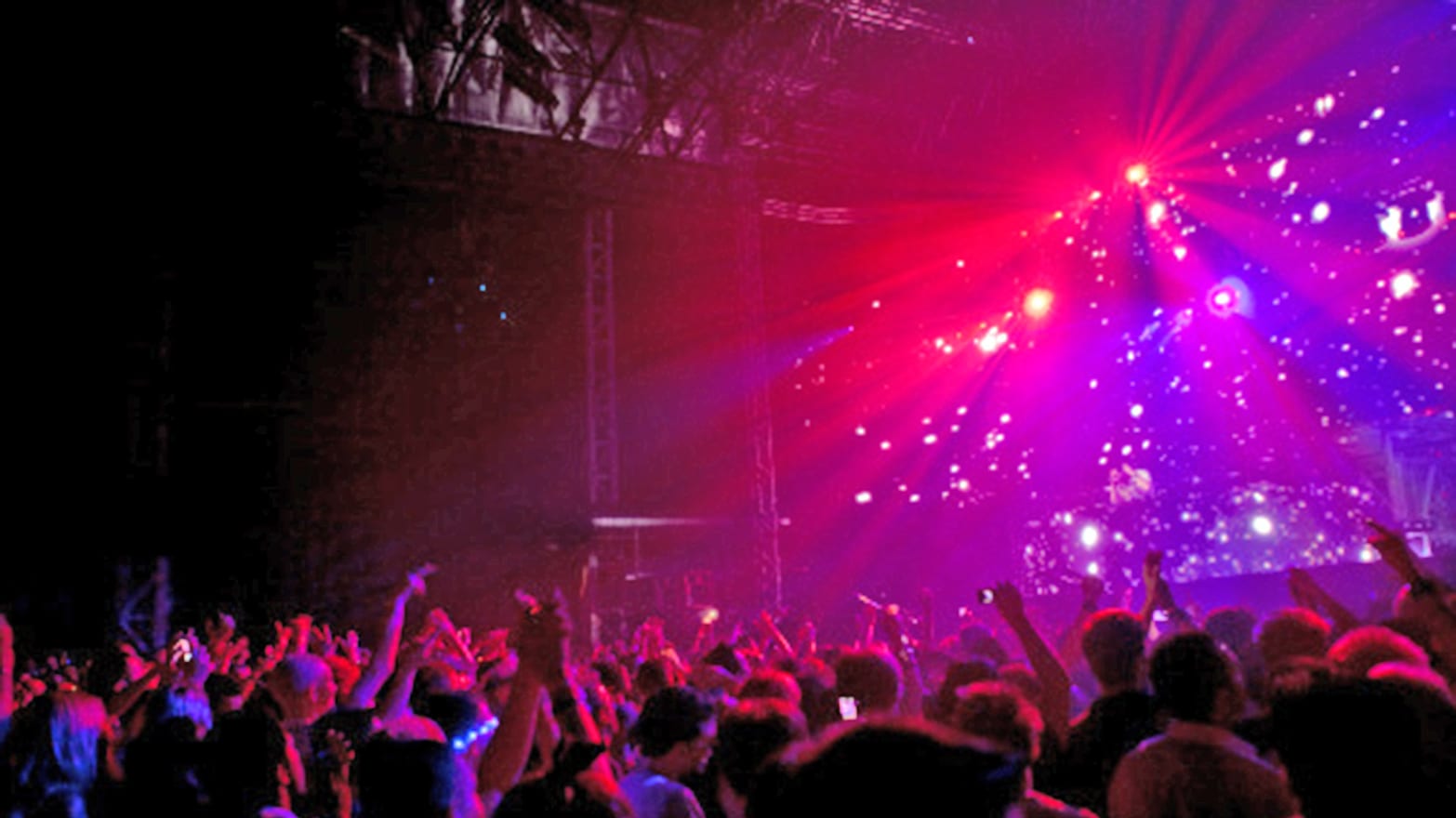This summer, global media attention turned to the tiny Mediterranean island of Ibiza after a brawl broke out between Orlando Bloom and Justin Bieber at the posh restaurant, Downtown Cipriani. But the catchy headlines opportunely concealed a dispute on a much higher scale: the ruthless competition between local bigwigs to split the enormous pie of the Ibizenco clubbing market.
Financiers, heirs of large fortunes, and ambitious self-made men were all trying their luck with more or less success within the Balearic entertainment El Dorado.
By the late 60s, the island witnessed a massive inflow of hippies and beatniks, who progressively displaced by the arrival of the jet set in the 70s, and real estate speculation that comes with the money.
But Ibiza reached its peak during the 90s, when the island became the starting point of the techno movement. All the European partyboys and girls, from Manchester to Barcelona, came to [party revel/go wild] in the island’s legendary clubs and embrace its hedonistic lifestyle.
But in recent years, tourism has exploded (in 2010, there were 2.4 million tourists) and the arrival of ambitious new investors has changed everything. La Isla Bonita has slowly turned into a strange melting pot of super wealthy oligarchs and new fortunes from the Persian Gulf—with their yachts parked in the very VIP Marina Botafoch—underage Italian clubbers wearing Ed Hardy shirts, British reality TV stars, and Premier league football players.
Giuseppe Cipriani, 49 years old and the head of his family’s eponymous restaurant empire, entered the game in Ibiza two years ago. Often regarded as an international playboy with a taste for top-models, he has tried to blow a wind of change on the island since 2013, bringing a wealthier, more high-profile clientele to the island. After succeeding in opening his restaurant, Downtown, along Ibiza’s marina in 2012, the Italian mogul raised in New York started thinking about ways to expand on the island.
After months of buzz and suspense cultivated by local authorities, who had been inexplicably slow to issue the necessary licenses, Cipriani finally announced the grand opening of his night club Bomba, built over the ruins of the old Heaven Club—formerly known as The Penelope—one of the leading gay clubs in Ibiza during the early 2000s.
But, one doesn’t open a club with such visibility within a walking distance to the world famous Pacha Club—a mythical place that has hosted the wild nights of hippies and jet setters since the seventies—without some teeth gnashing. At 75, the spirited Pacha founder, Ricardo Urgell, keeps an iron hand on his empire. The smiling, white-haired impresario opened the Ibiza club in 1973, before turning it into a global franchise. With his family, he stands among one of the most influential people on the island. Local rumors speculated that Cipriani’s administrative troubles building his newest property was linked to Urgell’s influence at town hall. When asked for comment, a public relations representative for Urgell said he was on a business trip and “not available to answer” questions at the moment.
Indeed, Cipriani had been wise enough to poach Danny Whittle, 52, the man behind Pacha’s success, to help with his newest venture. Upon his arrival in Ibiza in 1993, Whittle quickly became one of the leading architects that helped to create the island’s party-hard reputation. An electronic music enthusiast, he first worked for the cult Renaissance evening parties at Privilege and Pacha Club, in association with Ministry of Sound, a pioneer in electro music labels, before hosting his own party events. He also developed the parties, Home in Space, that eventually became the famous We Love parties with impressive line-ups of the “la crème de la creme” of international electronic artists. He was hired by Pacha Club as the new artistic director, and radically transformed it during his 13 years there.
Unlike others, Whittle remains deeply convinced that superstar DJ’s are the key ingredient to nightclub success, as he told The Daily Beast with an affable smile over una cerveza at the iconic Gran Hotel’s bar.
“You should compare night clubs to the football Premier League. You may have a magnificent stadium, [but] if you don’t pay to get top notch artists to perform, clients will not come over,” Whittle says.
As a visionary—and no doubt feeling the changes happening on the the Island—Whittle set himself a new challenge a year ago: to reach a comparable success to Pacha with Cipriani at his side.
In spite of his new entrepreneurial vision, Whittle maintains his good feelings towards the Pacha owners.
“Beyond what happened, I will always love Pacha, the owners, and what the club stands for,” he says.
In July 2013, I questioned Cipriani about the difficulties had while trying to open Bomba. He welcomed me on the stylish terrace of his restaurant facing the Marina, where waiters in white tuxedos were waving in all directions a few minutes before opening time. He played down the issue, saying, “People use to be more suspicious on an island were everyone knows one another. Fear of competition is stronger than anywhere else. Coming from Venezia, I perfectly know this feeling.”
But nothing ever happens as expected. Only a few insiders remember the prophetic words Mark Netto, Danny Whittle’s longtime partner, said with a knowing smile during the opening session of the 2013 International Music Summit in Ibiza’s Gran Hotel: “You know, on the island, change isn’t always welcome.”
In fact, Bomba almost turned into a nightmare for the Cipriani-Whittle duo. A few weeks after the opening, they abruptly had to change the club’s name, due to an unexpected intellectual property dispute. In January 2014, the World Intellectual Property Organization (WIPO) stated that Cipriani and his ultra-wealthy occasional partner Eyhab Jumean had no ownership right on the Bomba trademark. So Bomba became Booom!. Disappointed by the decision, Whittle and his team left Cipriani’s venture and joined David Vincent’s team—another one of Ibiza’s nightclub influencers who is the director of the underground and trendy venue, Sankeys.
And then at the end of January 2014, Periodico de Ibiza, a local newspaper, reported that Booom!’s landlord, Nung River SL, a company owned by the Cabau Family (whose daughter Yolanthe is married to superstar international soccer player Wesley Sneijder) were filing a complaint for 450,000 euros (approximately $564,000) in unpaid rent against the nightclub and were requesting the eviction of the tenant. The May 5 eviction date has come and gone, and Booom! is still open and has planned its Closing Parties for this season, an annual tradition for worldwide clubbers that takes place at the end of September. Neither Cipriani nor Whittle responded to requests for comment.
These changes and the purported rivalry between Cipriani and Urgell has not seemed to affect the omnipotence of another of the island’s big players: local tycoon Abel Matutes, 73, the almighty patriarch of a clan rooted on the island for three centuries. Mayor of Ibiza under Francisco Franco’s dictatorship as well as member of the Spanish Parliament and of the European Commission, Don Abel has combined politics and business with exceptional talent. He now presides over public works, maritime transportation (the major vessel of the Balearia fleet bears his name), real estate, and 12,000 beds in hotels at all levels of the tourism industry (including the impressive Hard Rock Hotel). Few of the annual 2.5 million tourists who come to La Isla Blanca every year escape paying their due at one of his registers.
The Matutes group also owns the mythic Space Club and the giant Privilege Club. Standing at the top of the luxury market is Ushuaia Hotel, where jet setters and oligarchs used to pay 10,000 euros for a suite, and the brand new Hard Rock Hotel with the most expensive restaurant in the world.
Obviously, one does not become the leading economic power in Ibiza without making a few enemies. Daughter Estrella, 42, is a professional designer who doesn’t mention her famous name on her blog. She was also involved in politics as the head of Ibiza’s urban development from 2004 to 2007. In July 2007, district attorney Adrian Salazar accused her, along with several of her public office colleagues, of having submitted to the vote of the council an urban master plan that allowed the sale of land which directly benefited her and companies in which her family has economic interests.
Estrella was eventually cleared of the allegations, but the situation was criticized in dramatic terms by her successor to the urban development council, eco-activist Neus Prats. “In Ibiza, compliance to the law is reserved for the poor. The Matutes, on the contrary, adjust it to their needs, while the island is drowning,” Neus Prats told El Pais.
But Giuseppe Cipriani seems to have unexpected abilities to bounce back: he recently succeeded in buying a strategic piece of land facing Roberto Cavalli’s new restaurant on the Marina Botafoch—5137 square meters auctioned off by the Spanish department of Defense that Cipriani bought for 8,101,196 euros, a price apparently too high for Matutes, in spite of his public connections, as reported by Spanish newspaper El Confidencial.
Regardless of how the impresarios’ competitive jostling to be crowned king of Ibiza nightlife shakes out, the undeniable fact is that the island is forever changed. Apart from the colorful weekly flea market of Las Dahlias in San Carlos, a tiny village in the northern area of the island, there is nothing left of the former hippie paradise of the seventies. After decades of stubborn resistance, local farmers finally agreed to sell huge parts of land to real estate promoters and entertainers. The turning point was probably the building of a big highway which was met by a major, and ultimately unsuccessful, social protest. Como se dice Winds of change in spanish?

